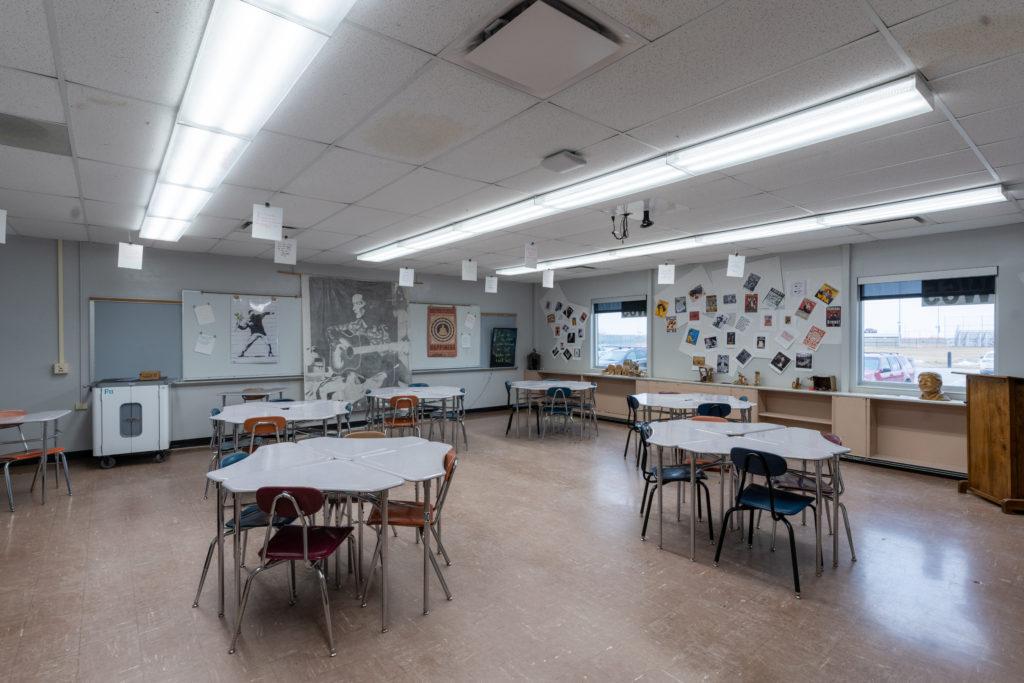On Feb. 17, 2022, Governor Kim Reynolds signed House File 2316, increasing the Supplemental State Aid per pupil by 2.5 percent, from $7,200 to $7,400. This is the state’s contribution to the school district based on the number of students. The money goes to expenditures including, but not limited to, teacher salaries, supplies for students and instruction-related costs.
Five days later, the Grinnell-Newburg School District (GNSD) Board of Education sent a letter of discontent to Reynolds and the Senate Education Committee, imploring them to be more diligent in future funding increases, especially after two years of teaching during the pandemic.
The primary complaint is that the 2.5 percent increase is drastically lower than the national inflation rate, which skyrocketed to 7.3 percent in January 2022. The small increase in funding may further increase the GNSD budget deficit, which currently stands at $380,000.
Earlier that week, high school teacher Kent Mick gave a statement to the board begging the board to send a letter to the State demanding adequate funding, equal to the inflation rate.
“You have coped. Your school staff, your teachers and your principals have scarified. But we have reached the end of the line. Enough is enough.”
GNSD Superintendent Janet Stutz said the lack of funding will be monumental for the district: teachers will resign, class sizes will increase, programs will be cut and students will move out of the district.
But Stutz said they are still fighting and drastic cuts haven’t come yet.
“We’re doing everything we can to ensure that we are maintaining our programs, but there’s only so much longer that’s going to be sustainable … I’ve been doing this for 37 years. These last few years have been the most challenging in education than I’ve seen since the early 90s.”
Stutz said that funding issues pervade school districts across Iowa, especially when districts compete with each other to hire new teachers, bus drivers and other district employees.
“We’re all trying to find and go after the same candidate … the only way some districts are able successful to get those kids is either to offer a different twist a different job a bonus and incentive.”
The GNSD has celebrated their positive outcomes despite the threat of insufficient funding. The district offers seventeen AP classes to students, has won statewide sports tournaments and has seen students publish novels while attending the system’s high school.
Mick has taught at GNSD for 35 years, and said that the current crisis comes at the heels of decades of insufficient funding.
“It is not possible to do the demands that the public is placing on us and do it with the money that we have.”
Mick is also the chief negotiator for the district’s teacher’s union. In 2019, Iowa stripped collective bargaining rights from any union of public employees (except on the topic of wages), which he said can leave teachers feeling powerless.
“You have to sit there and take it [the lack of increase in funding] because you can’t go on strike. And there’s no teacher including myself who wants to strike. But how do you get their attention if they can do this, and you just have to sit there and smile?”
But not all teachers in the District share the same concerns. Zachary Ceresa, a first-year 5th grade social studies teacher at the Grinnell Middle School, said he thinks the GNSD is a nourished institution.
“Education is a very underfunded occupation in general … but I thought 2.5 percent is better than nothing. It’s interesting that they complain about something that’s built into our very occupation.”
“We are very well funded in the district. All our partners in education, like Grinnell Mutual, do a great job giving us additional resources like paying for lunches once in a while for teachers or helping with classroom grants.”
Meanwhile, a greater increase can’t come any sooner for Stutz: “I do know that that something has to give. Something has to change and teachers really need the support not only from their leaders in the community, but also in the community, parents, families, need to help become those advocates.”
Stutz said the GNSD needs a “community that is going to be prosperous and enables students to have successful career paths. We want to give back to our kids, to our community, grow our own here so that we have a thriving Grinnell.”

























































